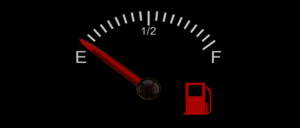Karen is a sales specialist for a medical devices company.
And she’s darn good at it.
Year after year, Karen exceeds revenue, growth, and market share expectations.
She’s the person called on to train new recruits, work with marketing on high-stakes projects, and lead customer initiatives.
She’s reliable, conscientious, driven, and trustworthy, and her colleagues, customers, and organization love her.
Karen is that person you want on your team. She’s the friend you enjoy. She’s the wife, mother, daughter, sister that everyone wants in their corner.
Which is why Karen’s burnout impacted so many people in so many ways.
And no-one saw it coming. Least of all, Karen.
So how did it happen?
Karen isn’t unusual. In fact, she’s the picture-perfect candidate for burnout.
In my time coaching professionals through burnout, I have learned something. While every one of my clients is different, they are all incredibly similar. There are common themes I see in each and every one of them. From the CEO to the first-responder, from the VP to the GP, and from the Sales Executive to the Nurse Practitioner, they are bound together by a common thread. And no, it isn’t that they’ve all experienced burnout.
The similarities lay in the fiber of who they are.
Allow me to elaborate.
In order to burn out, you first have to burn.
I have yet to meet a burned-out person who isn’t passionate and driven. I’m not talking about those people who use the term ‘burned out’ when they mean ‘extremely tired’ or ‘stressed’. I’m talking about the people who are really, truly, burned out. Those people are incredibly passionate, and they’re more than a little driven to do good work and achieve their professional and personal goals. They are hard-working, dedicated, conscientious, and self-motivated. They seek out their inspiration and they spend their lives working towards their visions. They’re the ‘fast-trackers’, marathoners, triathletes, iron men and women, martial artists, the list goes on. They’re life’s go-getters. Whatever they’re doing, they’re one hundred percent invested. They do nothing by halves, and they’ll do whatever it takes to achieve their goals.
People who burn out are multi-passionate.
I’m going to go out on a limb here and say that overwork isn’t the thing that burns people out. Overwork will tire you out, but not burn you out. Overwork is a symptom of burnout, not the cause. But it does cause the vicious cycle that makes the escape route somewhat elusive.
Suffice it to say that without exception, everyone I work with works too long and too hard. They work at work, they work when they’re not at work, they study for work, they worry about work, they spend their days off waiting to work. And that takes energy. A lot of energy. So, they sacrifice their passions to conserve energy for their work.
And that’s akin to cutting off their air supply.
Giving up, or doing less of the things that bring you joy, satisfaction, achievement, and fulfillment, leaves you exposed and vulnerable to chronic stress and burnout. In an attempt to ‘feel’ something, you will throw yourself deeper and harder into your work, thus taking you further away from the things you love. Your passions. It’s a vicious cycle.
Multi-passionate people need multi-passionate lives. And the majority of burned out people I meet are passionate about many things, be it work, sports, hobbies, family etc. However, because they’re so energy depleted they focus on just one thing. And, given that income is often a necessary evil, that one thing is usually work.
To avoid burnout, or to recover, reconnect with those things that give you energy, make you feel fantastic, and bring you enormous pleasure. I’m not talking about trying to achieve work-life balance. That doesn’t exist. I’m talking about learning to construct your life in a way that brings fulfillment. Perhaps hard to imagine when you’re energy-depleted, but I promise you, it is possible. Just take it one step at a time, and one day at a time.
People who burn out become their jobs.

Not engaging with things that fulfill you is one of the symptoms of burnout.
Burned out people are empty shells. They’re not broken, they’re empty. Which leaves them completely vulnerable to being defined by the things they believe make them feel ‘full’. For example, their work. If they spend endless hours working, they become defined by their work and nothing else. Therefore, when they’re not at work, they work anyway in an attempt to find fulfillment. Managers often see this as dedication when it is, in fact, cause for concern.
When multi-passionate people stop engaging in the things that fulfill them, their identity becomes hazy. They start to define themselves by what they do, not who they are. The things that make them whole and fulfilled, the things they love to do, slowly fade away taking their identity along for the ride. This is important. If you’re working with a team of empty shells, customers will be hard pressed to find common ground. Even to this day, people buy people. So let people be people. Heck, encourage them to be who they are. Everyone benefits.
Encourage people to participate and excel in their chosen sports and hobbies. And be concerned if you hear that they’re “too tired” or “too busy” to continue with their passions. Action – not extended periods of rest – is the most effective strategy in preventing burnout.
To beat the symptoms of burnout, you have to work with yourself, on yourself. Choose one thing that you love to do and make time for it at least three times per week. Even if you spend only thirty minutes engaged in that activity, it will make a massive difference to your state of mind, and your ability to perform personally and professionally.
People who burn out are very high energy.
Multi-passionates are generally very high-energy. To be able to do what they do and live as they live, they have to be.
But when burnout steals your energy and leaves you crippled by exhaustion and feelings of helplessness, you’ll feel you’re at the bottom of a very deep, dark hole.
You’ll grieve your former self and you may feel guilty, ashamed, lost, and incompetent. But you’re none of those things. Far from it!
And here’s the good news. You are rechargeable. It is absolutely possible for you to recharge yourself and come back with as much, if not more mental, physical, and emotional energy than ever before.
So what does this mean for leaders and organizations? Simply, it means that your people are rechargeable, not disposable. It means being aware that your strongest performers are your most at-risk.
Which brings me back to Karen.
Karen is a high-energy, multi-passionate, go-getting, high-achiever.
And she’s getting through her burnout. She’s emerging from that hole. Every day there are signs of progress. Real progress. And she’s recovering through action, not inaction. She’s recharging her energy by building a life that brings her pleasure and fulfillment.
She’s moving forward.
And that’s good for everyone.






